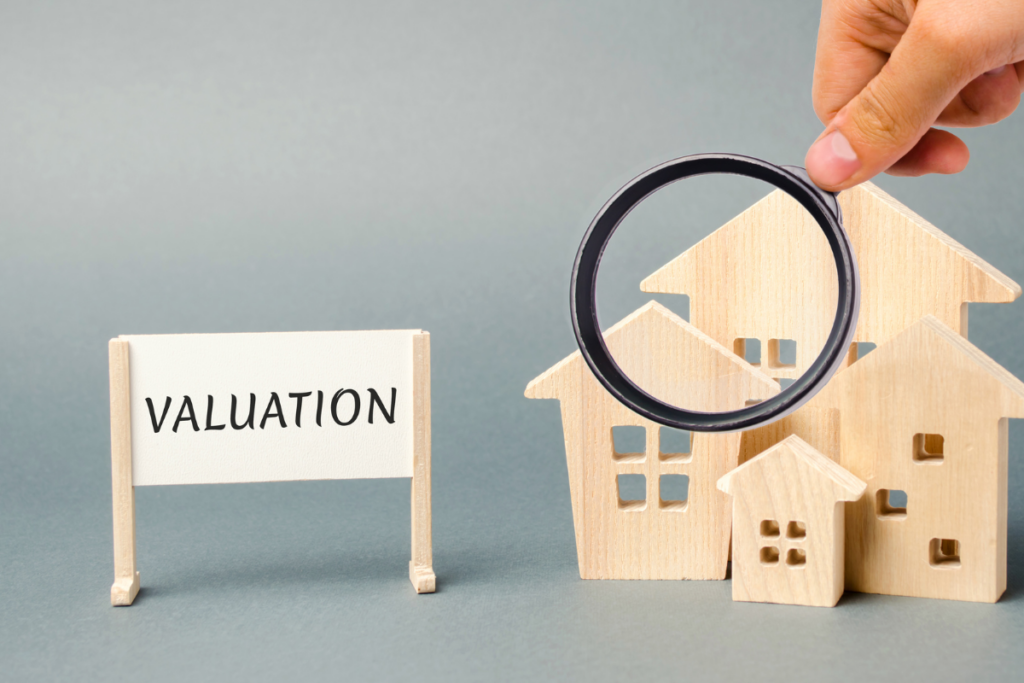A home valuation is an important step in the process of selling your property, going through a divorce, paying off a Help to Buy government loan, and more. It can help you understand the fair market value, and obtain the right asking price based upon your property’s characteristics and current market trends. By opting for an independent RICS home valuation, you can make the most of the chartered surveyor’s impartial and objective expertise, ensuring you get an accurate and realistic estimation. Having a home valuation should be both hassle-free and worthwhile, so here’s a few tips on how to prepare and get the most out of yours.
5 key steps on how to prepare for a home valuation
1. Show off your asset
Preparing for a home valuation isn’t the same as preparing for a visit from a potential buyer. The surveyor doesn’t need your property to look like a show home, but they do need to be able to see its potential to be able to give you an accurate estimation. Make sure access is available to outdoor spaces, bathrooms, storage rooms and the attic or cellar. It’s also a good idea to declutter as much as possible, show off natural lighting and floor space, and consider mowing the lawn and/or trimming the hedges. This will help the surveyor get a good picture of your property’s size, characteristics and overall buyer appeal.
2. Make a list of modifications

If you’re organising a home valuation due to a divorce, or looking to get an up-to-date value to pay back a loan taken out through a Help to Buy scheme, make sure to highlight any modifications you have made to the property as this may change the previous value given.
It may also be useful to have a list of possible value-adding features that are not necessarily visible to your surveyor. This can include the age of the boiler or flooring (if fitted recently), loft insulation, double glazing, and so on. A chartered surveyor is likely to ask you for the most important information that determines a property’s value, but it’s handy to mention any recent developments that could contribute.
3. Do your research
There’s a variety of factors that impact a property’s value, so doing a bit of research will help you understand how the surveyor will calculate the value. Usually, a RICS surveyor will use a market approach, which means looking at similar properties that have sold in the area as well as the individual characteristics of your property. Before your home valuation, have a look on property websites to get an idea of market transactions for houses in the area, as well as current asking prices. By looking at transactions instead of listings alone, you’ll be able to adjust expectations to a value that’s more likely to reflect actual selling prices (rather than high asking prices that haven’t attracted buyers yet). This is especially important if you’ve previously had high valuations and haven’t managed to sell.
While it’s good to have an idea of the market, you don’t need to know all the ins and outs. By opting for a qualified and experienced surveyor with RICS certification, you can lean on their expertise to obtain transparent valuations.
4. Prepare questions

Your biggest question will most likely be – how much is my property worth? But it’s also helpful to have additional questions in mind so you can digest whatever value you’re given. If you’re planning to sell in the near future, you might want to ask if there are any ways to bump up the price – such as quick improvements to the property, creating better outdoor space, or renovating the attic. You could also question whether there’s any wiggle room if you think the value is lower than anticipated.
If you’re just getting an idea of price or thinking of selling further down the line, you may want to ask about whether the price is likely to go up and when would be the best time to sell. Draw on the knowledge of your chartered surveyor to make sure you’re left with a clear picture.
5. Gather documents
Have all certificates, contracts, warranties and other important documents to hand. A surveyor probably won’t ask to look at any documents, however it can be useful to recall dates of modifications and discuss any strong selling points of your property.
It’s also beneficial to show if you’ve had any issues sorted, such as damp or structural damage, as these can directly impact the condition and thus value of your property if left unresolved. Furthermore, if you’re planning to renovate or extend, building plans and permission should be discussed with the surveyor.
Other tips to help you prepare for your valuation
If you have a valuation booked, it’s beneficial to prepare in advance so that you are ready for the appointment and you can take advantage of opportunities to boost the value of your home. Here are some tips:
-
- Declutter and clean your home
-
- Finish off DIY jobs
-
- Freshen up paintwork
-
- Clear the driveway and ensure easy access to the property
-
- Enhance natural light by opening the curtains wide, leaving internal doors open and using mirrors to bounce light around
-
- Make living spaces welcoming with touches such as plants, flowers and soft furnishings
When will I know how much my home is worth?
In some cases, it is possible to get an idea of a valuation during the visit, but in others, you may be asked to wait so that a surveyor or estate agent can review the information before they provide a figure. It should not take long to get your valuation. Once you have been given a figure, feel free to ask questions and find out more. Some sellers may want to learn more about the potential to add value if they’re not 100% sure they want to move, for example.
How to add value to your home

For most people, buying a home is the most significant financial investment they will make in their lives. It’s natural to want to enhance the value of your asset and get the best price when it comes to selling. There are several steps you could consider to add value to your home if you’re not in a hurry to sell. These include:
-
- Apply for planning permission: this can make your home more appealing to buyers and attract a wider range of buyers
-
- Consider adding an extension, a conservatory or a garden room
-
- Create space for a home office
-
- Convert an attic or basement
-
- Revamp the kitchen and bathrooms
-
- Tidy up the garden and driveway
-
- Finish DIY and repair jobs
-
- Use external space for off-street parking
-
- Use storage to maximise living space
-
- Consider converting your garage into a living area
-
- Cater to new trends, for example, knocking down walls to create an open-plan kitchen-diner
In addition to adding value to your home, it’s also beneficial to think about staging your home to make it more saleable. Adding value won’t necessarily make buyers fall in love with the property. Simple touches like freshening up the walls, adding plants, using soft furnishings to add a cosy feel and maximising natural light can add ambience and make buyers feel more at home.
Home valuations provide sellers with an estimate of the value of their property. If you are selling, or you’re trying to decide whether to move or renovate, it’s a good idea to prepare for your home valuation and think carefully about who you would like to ask to value your home. Surveyors offering RICS valuations will provide you with an accurate market value, which you can use to set an asking price and plan your next step. Contact CJ Bloor Property Consultants for a Quotation.
Ultimately, RICS valuations are intended to be informative, but they should also be fairly stress-free. You don’t need to impress the surveyor, it’s about obtaining the right estimate and information you need. Small steps to prepare for a home valuation can make sure you’re feeling ready and know what to expect.




